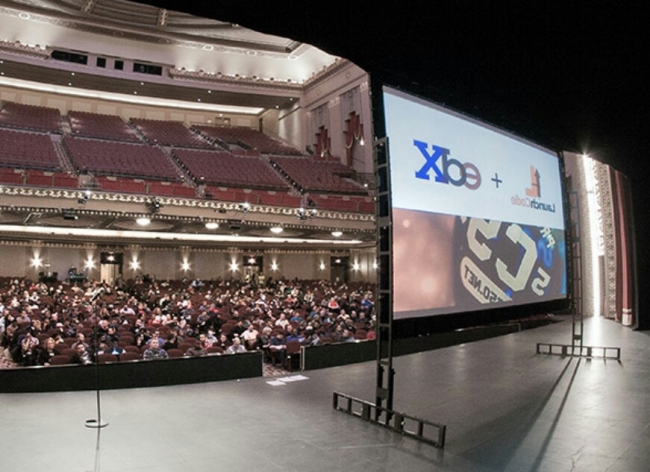You have /5 articles left.
Sign up for a free account or log in.

LaunchCode
Harvard University will this spring offer three versions of its Introduction to Computer Science course, each with its own level of rigor and student-instructor interactivity. With a paid option that offers students a discount toward future studies at the university, the course represents yet another attempt to find a sustainable business model for massive open online courses.
The course can be taken for no academic credit as a free, self-paced MOOC through HarvardX, the university’s branch of edX, and also as a credit-granting online course through the Harvard Extension School for $2,050. The school is also offering a third path that blends the flexibility of the HarvardX course with biweekly, online office hours with senior lecturer David J. Malan and a discussion forum moderated by teaching fellows. That hybrid option, which costs $350, can be completed for an official certificate, and the cost is returned in form of a discount on a future course through the Extension School or Summer School.
A spokeswoman for the Extension School declined to speak on the record about the course, stressing that the experiment is one faculty member’s idea to rethink his course. Yet a spokesman for HarvardX described the course as a “pretty ambitious revenue experiment” that shows “the ways that MOOCs continue to expand [and] surprise us.”
The Extension School provided preliminary data about the popularity of each version, which suggest the $350 option is not cutting into demand for the credit-granting course. The free version of the course, CS50x, has, not surprisingly, attracted the most students -- more than 174,000, according to Malan. About 100 students have signed up for the traditional online course, CSCI E-50, and another 100 for the hybrid certificate granting option. Students have until Feb. 3 and April 4, respectively, to register for the paid versions of the course.
Apart from a reference to it on the HarvardX page, the $350 certificate option has yet to be advertised. A spokeswoman said the university will do some “light marketing” in the weeks before registration closes.
Despite the apparently popularity of the hybrid option, chatter on social media suggests some students are unsure of the worth of a certificate from the Extension School. Several members of course’s official community on the social network Reddit, for example, said they were torn between completing the course for a free edX honor code certificate and paying the $350.
“I have been very tempted to shell out the $350 and get a more worthy certificate, however, I'm wondering how beneficial the certificate would be in the real world,” one user wrote.
“I figured it looks more authentic/unique and will be good to have when applying to universities,” another user wrote.
Of course, it won’t be until later this spring until Harvard can determine whether a $350 discount is enough of an incentive for students to sign up for a credit-granting online course, which would cost an additional $720 to $1,750.
Lowering Barriers in St. Louis
Independently from Harvard’s efforts, a St. Louis-based nonprofit called LaunchCode will use the free version of the course in an ongoing effort to bring more qualified programmers to the region -- the latest case in a recent trend of using MOOCs for corporate training. Students in St. Louis will meet twice a week for three months to watch the prerecorded lectures and study in groups.
LaunchCode connects job seekers in the St. Louis area with companies that offer apprenticeships or on-the-job training. The course adds another step to that process, said Zach Lou, a LaunchCode volunteer, as it is aimed at those who may need more formal training.
“The class itself isn’t a prerequisite, but we think that it’s a really good barometer,” Lou said. “If you can pass this class ... we think you can be at that level where we can then place you in an apprenticeship.”
LaunchCode has also recruited programmers from the community to serve as mentors during the sessions. “People who take this course lose motivation because there’s no deadline and no people holding them accountable,” Lou said. “We’re providing a structured classroom setting, and also some mentorship and peer accountability.”
LaunchCode received more than 450 applications after less than a week of advertising the sessions. By Monday night, the application pool had more than doubled. The rush of interest took the organizers by surprise -- they had booked a 300-seat auditorium in the St. Louis Public Library, but were forced to move to the Peabody Opera House to accommodate the roughly 800 aspiring coders who showed up. The class will return to the library for the remaining sessions, with spillover seating in two other locations.
Lou said LaunchCode was founded to lower the barriers to employment for people who may not have the skills human resource managers are searching for listed on their resumes, and although some of their programmers fall into that category, “the larger cohort of people have some grasp of programming but haven’t really had ... the best education in terms of what skills they're in demand for in the workforce. Maybe it’s just that the various barriers of entry are not only on the job site, but maybe in what people need to know.”




